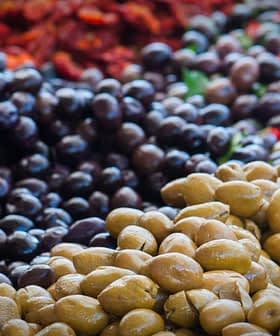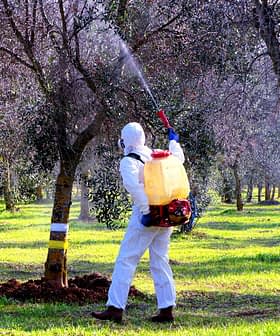California Trade Group Rescinds Membership Agreement After Backlash
The California Olive Oil Council rescinded its original 2020/21 membership agreement following backlash from farmers and producers, accusing the organization of favoring California Olive Ranch’s Destination Series in the new agreement. The change would have allowed California Olive Ranch to rejoin the COOC and certify their California-produced oils, omitting the controversial Destination Series blend.
The California Olive Oil Council (COOC) has rescinded its original 2020/21 membership agreement after a swift backlash from many of the state’s farmers and olive oil producers.
In a petition sent to the organization’s board of directors as well as executive director Patricia King last month and obtained by Olive Oil Times, producers accused the trade association of changing the language of the agreement to favor California Olive Ranch’s Destination Series, an extra virgin olive oil blend of California and imported oils.
By allowing a company to have the word ‘California’ splashed on the front of the bottle in big and bold letters without the oil being produced here, it dilutes the value of the COOC and of California olive oil.
In the 2019/20 membership agreement, the COOC stipulated: “If use of ‘California’ in any phrase such as company name, brand name, or other word or group of words, or images that identify California on the label of any oil sold by the member, then 100 [percent] of the fruit to produce the oil must come solely from the state of California.”
As a result of the clause, California Olive Ranch was barred from being a member of the COOC during the past year and did not have any of their oils certified by the trade association.
See Also:Olive Oil LabelingPrior to being removed from the COOC website, the newly updated 2020/21 membership agreement stated: “All oils certified by the California Olive Oil Council must be from 100 percent grown and produced California olives.”
The surreptitious change would have allowed California Olive Ranch to rejoin the COOC and certify all of their California-produced oils with the trade organization, but omit the Destination Series.
The 46 signatories of the petition, who combine to make up the vast majority of the COOC’s production and revenue, condemned the decision to make the change to the agreement, calling it “misleading and damaging to the California brand that the COOC is supposed to protect and promote.”
The COOC is the largest certification group in the state and being a member comes with several benefits, especially for smaller producers. The COOC seal has some consumer recognition and a few specialty food stores in the state only stock locally-produced extra virgin olive oil with the seal.
Many of the state’s producers see the role of the COOC as promoting the quality of California extra virgin olive oils, which are more expensive to produce and therefore cost considerably more than imported oils.
“By allowing a company to have the word ‘California’ splashed on the front of the bottle in big and bold letters without the oil being produced here, it dilutes the value of the COOC and of California olive oil,” Greg Traynor, co-author of the petition and co-owner of 43 Ranch, told Olive Oil Times.
When asked about the change to the wording of the original 2020/21 membership agreement, a spokeswoman for California Olive Ranch told Olive Oil Times that the company had no knowledge of the change, but emphasized their commitment to protecting the integrity of California olive oil.
Michael Fox, the CEO of California Olive Ranch, also told Olive Oil Times that the company did not plan on rejoining the COOC and would continue to have their extra virgin olive oils certified by an independent lab.
King would not acknowledge the original 2020/21 membership agreement when asked by Olive Oil Times. However, she said the current 2020/21 membership agreement had been approved unanimously by the board of directors.
“We believe this requirement clause further champions 100 percent California grown and produced certified extra virgin olive oil,” King said.
The wording of the updated agreement is identical with the wording of the 2019/20 membership agreement.









